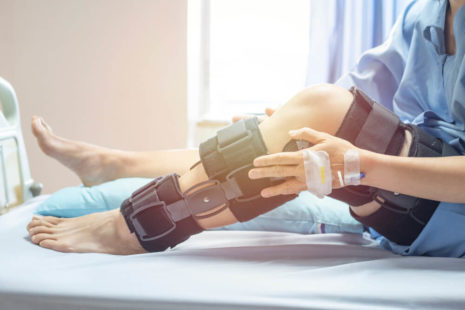If you are experiencing neck pain, it’s generally not recommended to sleep on the side that hurts. Sleeping on the side that is already painful can worsen the discomfort and potentially exacerbate the underlying issue. It may also lead to additional strain on the neck and shoulders.
Instead, consider the following sleeping positions that can help reduce neck pain and promote better spinal alignment:
- Back Sleeping: Sleeping on your back with a supportive pillow can help keep your spine in a neutral position. Use a pillow that adequately supports your head and neck, allowing them to maintain a natural alignment.
- Side Sleeping with Proper Pillow Support: If you prefer sleeping on your side, place a pillow between your knees to align your hips and reduce pressure on your lower back. Additionally, use a supportive pillow that keeps your head and neck in a neutral position.
- Avoid Stomach Sleeping: Sleeping on your stomach can strain the neck and lead to discomfort. This position is generally not recommended for those experiencing neck pain.
Here are some additional tips to help alleviate neck pain while sleeping:
- Choose a pillow that provides adequate support for your head and neck. The right pillow should keep your neck in line with your spine, whether you’re sleeping on your back or side.
- Use a firm or medium-firm mattress that offers proper support for your body, ensuring your spine maintains a natural alignment during sleep.
- Avoid using excessively high or stiff pillows, as they can cause your neck to bend unnaturally and result in strain.
- Consider using a neck roll or cervical pillow specifically designed to support the natural curve of your neck.
- Practice good sleep hygiene by creating a comfortable and relaxing sleep environment.
If you are experiencing persistent or severe neck pain that is interfering with your sleep or daily activities, it’s essential to consult with a healthcare professional or a physical therapist. They can diagnose the cause of your neck pain and provide appropriate treatment and recommendations for improving your sleep and overall neck health.



